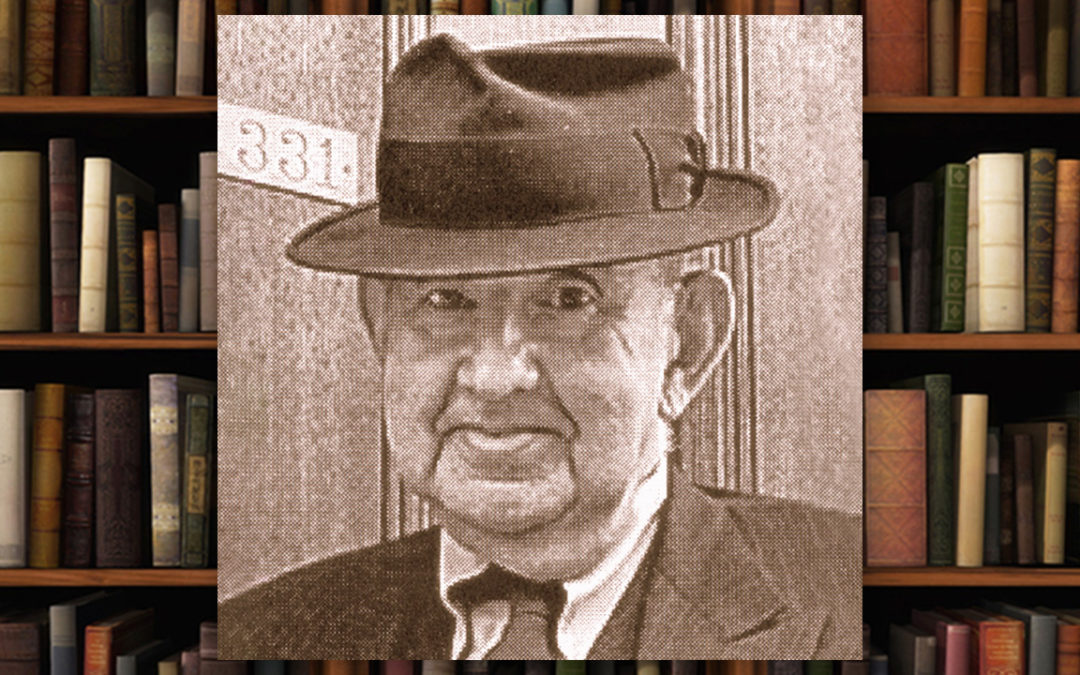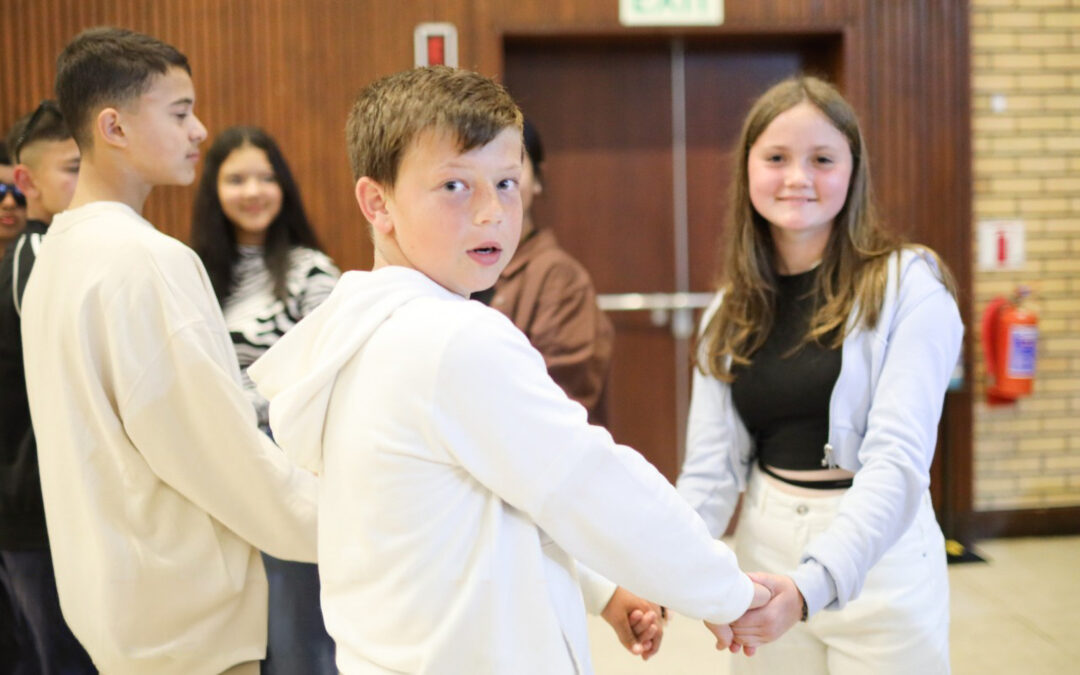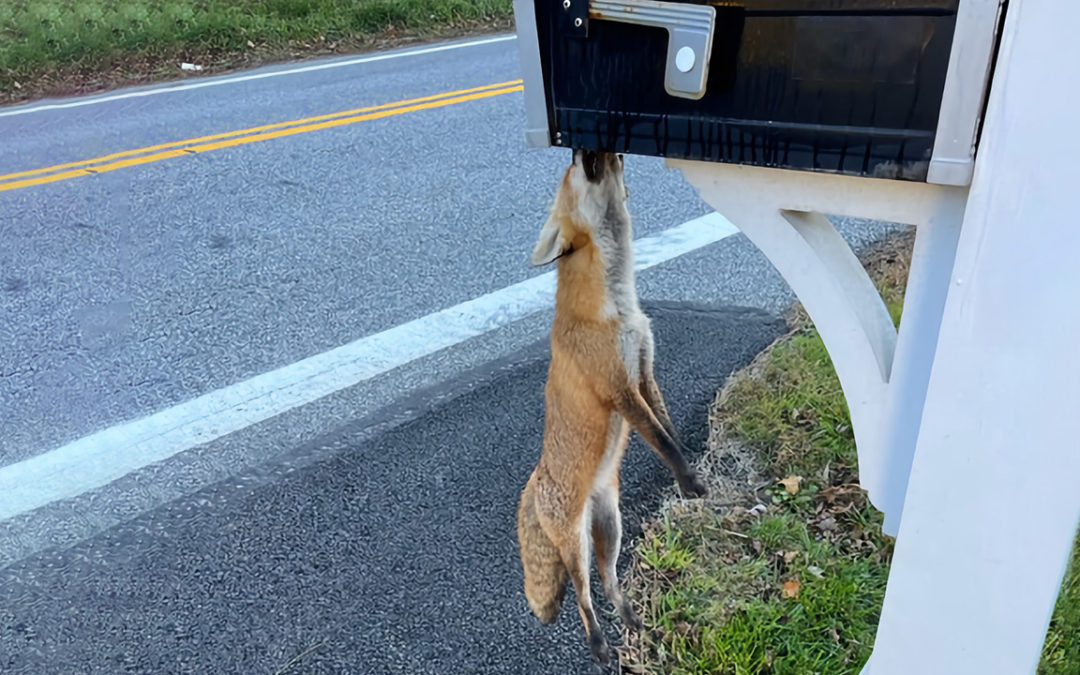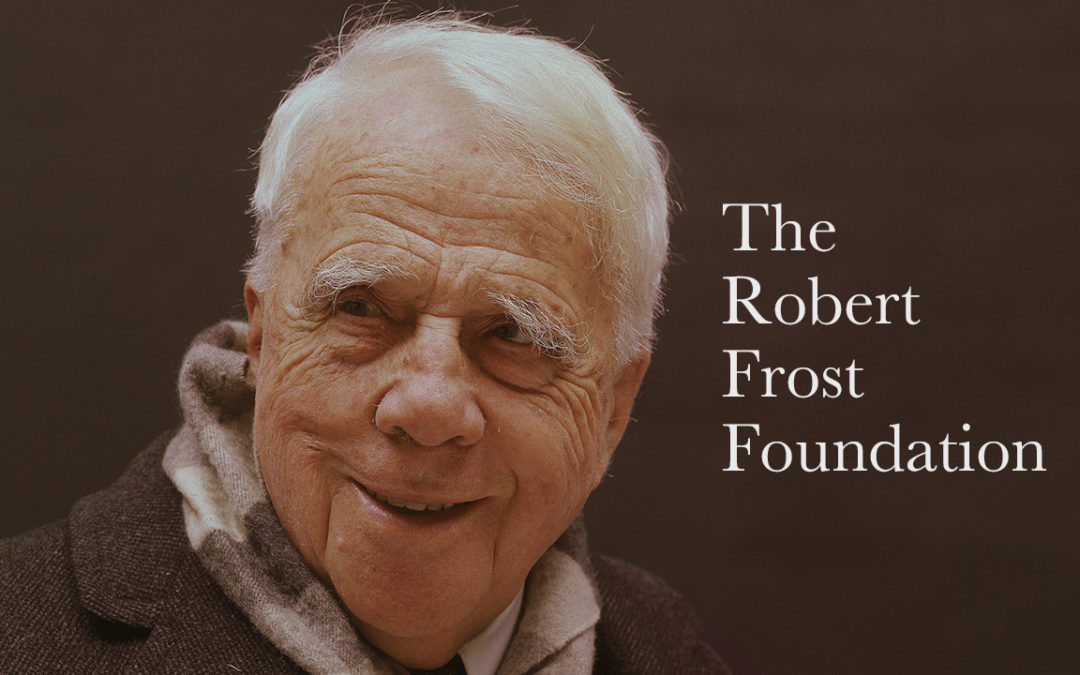
by Robert Bowie, Jr. | Jan 24, 2023 | Featured, Personal
I have always been a soft touch when it comes to animals. It has gotten me in trouble and on occasion broken my heart.
My heart is broken today but it has also been reawakened.
On the 4th of July, years and years ago, my first wife and I were driving past Towson University when I saw a baby raccoon alone near the entrance. Without hesitation, I pulled the car over and went to the little fella. He had been abandoned and was sick and starving. He was curled up and about the size of my hand. He was probably only a week old and was all alone, so of course I scooped him up, named him Thomas Jefferson, and took him home. I got instructions from a vet and fed him with a dropper.
I became so attached over that first week that I set my alarm to ensure his steady feedings, and when he died very late one night I, without a second thought, gave him artificial respiration.
My wife was justifiably horrified and insisted I get rabies shots, which I did. Thereafter the joke in the neighborhood was “if you see a rabid animal, call Bob because he can bite back.”
My animal advocacy and militant, often imprudent, protection of animals was acquired early. When I was about nine or ten, I lived next to a high school which held a “Sportsman’s Show” to raise money for the school.
Somebody had blown up a wading pool and put 100 trout in it so that the “sportsmen“ could use barbed treble hooks to snag the trout, which were then promptly cleaned and taken home to be fried.
I was horrified by the cruelty and the thought that everyone of these trout was doomed.
I went back home to my the piggy bank. I returned with money and a net to buy three trout with my savings, but I did not want them killed.
I had a plan.
I filled up the bathtub in the third floor of our house, placed the trout in it and refused to take a bath until my parents drove my fish to be released in New Hampshire. After a week and a half of no baths, my parents became persuaded.
It got worse.
Back then, if you went to the circus, you could buy chameleons which had little strings around their necks and a safety pin to clip them to your shirt. They didn’t stand a chance.
I again emptied my piggy bank to buy as many chameleons as I could, and then housed them in an old aquarium. I built a landscaped jungle with little waterfalls and a window screen top for air circulation. That summer, I traveled with a tiny little fish net, so I could catch live flies for food. I concluded that the pet store food was not good enough for them. It was less organic than my free-range flys.
It got worse.
I cared for a small alligator that was shipped to me from Florida back when that was legal, and it lived in my bathtub until I, again, convinced my parents that life would be better for it at the zoo.
It got worse.
There were birds with broken wings, which I fed all of the bay scallops that were scheduled for dinner. There were these two kittens that I acquired while hitchhiking, when somebody had fed them both LSD so they were wet with sweat from fighting hallucinations. I named them Fruehauf and Brockway, the names of trucking companies.
One summer, we rented a house on the Eastern Shore of Maryland, and my job was to care for a pregnant cat that lived in a woodpile in the barn. Of course I was there when the nine kittens were born. I spent the rest of the summer forever getting them back to their mother in the woodpile.
Over time, my parents gave in and we adopted a black stray female mixed-breed who, of course, jumped the fence and had three puppies in the garage.
When I met my second wife 11 years ago, she had a one-year-old puppy named Winston, which made me love her even more. Several months ago, Winston developed tumors and problems with his lungs and hindered legs. Last week, we were told by our vet that Winston had only two or three months left.
My wife and I were scheduled to visit her family in Florida last weekend, but the vet told us that even though Winston could last for a few more months, it would be too stressful to board him at her kennel, given the noise and his condition. I volunteered to stay home with Winston so my wife could be with her family. Unexpectedly, Winston went into decline, and we decided the only humane thing to do was to put him down as soon as possible.
I was up several times throughout Sunday night to give Winston painkillers. The doctor came at 10:00 in the morning yesterday, sedated Winston, and then administered the shot. After we waited, she gently took out her stethoscope and softly pronounced him dead.
Winston knew my wife longer than I have, and they loved each other dearly. When she decided to put him down, even though she couldn’t be there, I recognized it was a sacrifice for her. There were tears, but she said she cared more for the quality of his life than for the pain she would feel not getting to see him one last time.
It is one thing to love animals, but it is another when you see the humanity of someone who sacrifices their feelings for those they love.

by Robert Bowie, Jr. | Jan 17, 2023 | Featured, Personal, Poetry
I have just met a lot of feral cats in My Lady’s Manor in Monkton, Maryland, and I really like these feral cats! These are not the fighters on fire escapes I knew when I lived in inner-city apartments.
Slightly before Thanksgiving, I was invited to set up an open mic by Angelo Otterbein, the new owner of the new Manor Mill in My Lady’s Manor in Monkton, Maryland.
So what is an open mic? What is My Lady’s Manor? Where is Monkton, Maryland, and who are these feral cats?
The town of Monkton is about 45 minutes north of Baltimore and about 5 minutes south of the Pennsylvania boarder and the Mason-Dixon line. It includes a old grist mill, a miller’s house, a small hotel with a little cluster of houses next to the Gun Powder river, all nestled around a mid-1800s whistle-stop of the defunct North Central Railroad, the tracks of which are now a walking trail that runs next to the river.
In 1713, Charles Calvert, 3rd Baron of Baltimore, made a 10,000 acre gift of land to his fourth wife and christened the estate “My Lady’s Manor.” Monkton and My Lady’s Manor are known for sprawling countryside, horse farms, and old, stately homes set back from the country roads.
Angelo recently purchased the old grist mill and has revived and converted it into a historically renovated creative arts center, and the old Hotel now houses trout fishermen and nature walkers.
An open mic is an invitation to performers — poets, in this case — to stand and deliver their work in front of a live listening audience.
These cats are poets.
As a lawyer for over 30 years, my professional life offered me a chance to submit plays I wrote to the Baltimore Playwright’s Festival, but I had little or no access to local poets.
Angelo’s invitation to develop an open mic on Monday evenings unexpectedly provided the opportunity to meet the poets of the region, and it has been amazing to watch these cats in front of an open mic.
These cats are poets because they observe and take the time to write down what they observe and, by committing to this practice, they develop their own voice.
The more one writes, the more one discovers one’s own voice.
It is a solo voice that is created through omission and selection. What you leave in and what you leave out. It is your speaking voice on paper, but it is a solo voice.
All of a sudden, I have been surrounded by a wonderful collection of solo voices that are quite different from each other’s and from my own. All of a sudden, I discovered there are small but selective poetry magazines, published all around me, whether on paper or virtually. It is a world alive and well, created by this remarkable community of feral cats.
Over the last few months, I have been putting together these open mics on the first Monday of every month. The hustle and bustle of the Manor Mill — which features painters, musicians, metal sculptors, basket weavers, and textile artists, teaching and learning from each other — subsides on Monday evening, and the mill is surrendered to the open mic and poets.
The Manor Mill is a remarkable place, far from urban environments. It draws people who have often never met before. It takes incredible courage to stand up in front of strangers and speak, but it takes even more courage to stand behind your voice and deliver a vision in the form of a poem to strangers.
It is exciting to witness this courage, and walk into a world of so many new articulate voices. They speak differently. They think differently. They approach poetry in so many original ways.
Poetry is the most flexible art form available in language because of line breaks, intentional rhythms and rhymes, and the limitless themes available, because ideas and expression can be shaped in ways that are less constrained than sentences, paragraphs and chapters.
It is astounding how wild and creative these people are, and how much I have learned from them in such a short time as I find my new voice and learn to listen to others in this beautiful new welcoming environment.

by Robert Bowie, Jr. | Jan 10, 2023 | Featured, Personal, Poetry
Two weeks ago, I wrote about Professor William Alfred, my tutor in college, and how my affection has grown for him. Today, I will remember the other mentor for whom I have a continued and growing affection.
Elizabeth Bishop (1911–1979) was, and still is, a very respected poet of the late 20th Century. She lived a hard life filled with loss and loneliness. She was raised and passed around by her maternal grandparents and relatives after her father died when she was a year old and her mother was placed in a mental hospital.
After she got into and graduated from Vassar, because she had no traditional family to surround her, she found comfort in travel. In late midlife, after her partner with whom she lived in Brazil for years died, she was alone again. Robert Lowell convinced Harvard to offer her a chance to teach there.
In order to get into her class in the fall of 1972, I had to submit an essay on the Wallace Stevens poem “The Emperor of Ice Cream.”
It starts:
Call the roller of big cigars,
The muscular one, and bid him whip
In kitchen cups concupiscent curds.
It is a difficult poem. It is like a description of a carnival with its cigar rollers and ice cream makers but it is about the preparations for a Cuban funeral. It is a celebration of life, not a celebration of the dead person. The end of the first stanza reads:
Let be be finale of seem.
The only emperor is the emperor of ice-cream.
From my first reading it struck me personally as being so godless and lonely. It ends with this:
If her horny feet protrude, they come
To show how cold she is, and dumb.
Let the lamp affix its beam.
The only emperor is the emperor of ice-cream.
Years later, I found in her letters her description of how she had decided to choose that poem for the competition.
She was walking alone past Brigham’s Ice Cream in Harvard Square toward Kirkland House where she would make copies of the poem she had chosen for the competition and leave it with Alice Methfessel, a staff person at Kirkland House, to hand out to the competitors.
Alice would, a few years later, become the executor of Bishop’s estate.
It was a small class limited to around 10 to 12 people. She required that each student memorize 15 lines of two 20th Century poets for each class. She was insistent. When she pointed at us in class, we had to recite our chosen poems.
She told us it was a way to bring a poem alive again. When it was recited in a different environment it will be different than reading it from a book again and again. It was like a friendship you could carry with you.
Bishop did not appreciate self centered over egoed undergraduates. I was a little older myself. From the beginning, I believed I felt her loneliness and I imagined she felt mine, but I wrote it off as my imagination.
I worked very hard in Bishop’s class and she saw the depth of my interest and commitment. I didn’t speak up much but I was always prepared for class. I never made intentional eye contact but I found that midway through the term she smiled after I had participated, and by the end of the year we would even talk briefly as we were leaving class to reenter the Square.
We talked about things rather than poems when we chatted. This was a time when confessional poetry was on the rise and people wrote very personally about their families and themselves extensively, but Bishop by nature was reserved and private. She wrote about things that were indirect, but they were very moving and profoundly personal.
No one believes me now, but I misread the instructions for the first hour of the three hour blue book final exam. The instruction required that we were to write out verbatim half of all those poems that we had memorized. I wrote out all of them.
I got an A from her and Professor Alfred was pleased because she had a reputation for being a hard grader.
I asked her to write a recommendation when I applied to law school. She agreed but I was surprised to almost sense she thought my choice was a little misguided given my obvious love of the arts. I don’t think she thought too highly of lawyers.
Years later, well after she had died, I was surprised to learn her recommendations could still be found at Kirkland House, so I asked to see her’s of me and when I read it, and proudly made a copy, I discovered something.
She wrote a short but glowing recommendation but she concluded:
“… but I feel he has great abilities, and possibly talents, he is not aware of himself… Mr. Bowie has worked very hard and has a very original cast of mind. I recommend him highly.”
What an odd and gratuitous comment for a law school recommendation, I thought. Did she know someday I would find it?
And then I smiled as if she had touched my hand.
She had cared about me. And as I stood there rereading my Xerox copy, I felt affirmed and supported to continue on this, my late life journey. She had noticed me.
Photo: Archives and Special Collections, Vassar College Library

by Robert Bowie, Jr. | Dec 20, 2022 | Featured, Personal, Poetry
I have been discovering that love grows over time with reflection.
In 1965, Hogans Goat, a verse drama about love and politics set in turn-of-the-century Irish Brooklyn ran for over 600 performances on Broadway. It was written by Harvard Professor William Alfred, about the world in which he had grown up. In the early ’70s it was made into a movie.
Alfred was a legend at Harvard. Everyone loved him because he was completely approachable, lived in unassuming rumpled clothes, and had a habit of giving all the change in his pocket to the street people in Harvard Square. He knew some of them by name.
As a teacher, he was beloved because he taught an unbelievably good class on Beowulf, old English, and poetry in Sanders Theater every year to well over 500 adoring undergraduates. That is a testament to his talent.
He lived alone in a little house on Athens Street just outside of Harvard Square.
I was terrified when I was admitted as a transfer student to Harvard. The summer before my first classes, I had seen Hogan’s Goat on TV. It was great. I couldn’t get enough of it.
I was terrified of the place but I was a determined starstruck groupie with a plan.
As soon as I got my student ID, I went to Nick at Brattle Florist in Harvard Square. Nick was a proprietor and a friend. I had started buying corsages from him in high school, and I loved just going into his shop to talk to him.
I had decided to buy flowers and knock on Professor Alfred’s door to tell him the truth about being a starstruck groupie who just wanted to meet him.
Nick told me that Professor Alfred came in regularly, so he knew his favorite fresh flowers.
I took my bouquet early in the afternoon to Professor Alfred’s little house. I carefully ascended the three steps and almost knocked on his door, but I lost my nerve. I made two more passes before I finally knocked on the door and waited.
When he answered, I immediately straight-armed my flowers at him as I stood on the top step and I told him I was a transfer student who knew no one but I was a big fan of his and then I turned to go. He thanked me and to my surprise he said, ”Come in. I’m making tea.”
I entered into his little living room and sat in one of the wing chairs next to a little fireplace with a small clock on the mantle.
Professor Alfred returned with the flowers in a vase and a pot of tea with cups. He settled in and started to ask me questions. I was caught completely off guard. I talked too much about myself because I was nervous. But finally, I had the sense to ask him questions about the play as I kept an eye on the little clock on the mantle. I did not want to outstay my welcome, but I didn’t want to leave.
After almost 25 minutes, I stood up and apologized for staying so long, and Professor Alford asked me, “Do you have a tutor?” I didn’t know what a tutor was so I was sure I could confidently tell him, “No, I don’t.” He promptly replied, “I can be your tutor.” I promptly accepted, even though I had no idea what that meant.
That night, I went to my first dinner at Kirkland House, my new dorm along the river. I had been assigned a room and I told the three or four boys who randomly settled their trays at my table that I was a transfer student and I wondered if they knew what a tutor was. I was told it was like a graduate student who was sort of an academic big brother. I told them I had randomly met Professor Alfred that afternoon and he had offered to be my tutor.
My dinner companions were shocked. “You’re kidding! Alfred is your tutor?” The next day, I rented a room on Putnam Avenue and never stopped studying for fear I would flunk out.
I was convinced that once my fellow classmates at Harvard discovered how stupid I was, it would be the rage of the campus and I would be pointed out continuously, so I never moved in to Kirkland house.
For two years, once a week at 8:30 a.m., I met Professor Alfred and we studied poetry together. At the end of each meeting he would ask, “What do you want to learn next week?” There were no limits. We talked about Greek metrics and rhymes in English and non-English in translation, and poetry all the way back through Beowulf.
In the spring, we would set up two chairs in his little backyard and he would feed the squirrels by hand as we talked. Quite unconsciously, he became my poetic surrogate father. In short, I fell in love with the man, the devout Catholic, the humanitarian and the poet.
He would at times quote from memory poems he liked. One time, he quoted: “There is in God (some say) a deep, but dazzling darkness…”
It was by Henry Vaughan (1621–1695), but I didn’t take in the rest of it. His recitation had stopped me in my tracks because of the way he delivered it. He measured out the rhythm in the air and there was an intensity in the way he looked at me that made me lose my concentration.
Although Professor Alfred was in late middle age, he loved life, and I loved that he rose to almost any occasion.
One morning as I entered, Robert Lowell, the famous poet was leaving. Professor Alfred explained, “Cal wanted to go see the artistes last night.” They had gone down to the “combat zone“ in Boston because Lowell, the old Brahman, very much out of character, wanted to see the strippers at work.
One morning as I entered, Faye Dunaway, the star of Hogan’s Goat, and Peter Wolf, the lead singer for The J Geils Band, were on the couch in the living room. The two had obviously been on a very creative overnighter, and Alfred had sat up with them because they were friends.
I graduated with honors in 1973, and when I would visit Boston or Cambridge I’d visit Nick to pick up flowers and knock on Alfred’s door. If he was in we would always talk.
It was always professor/student but it was always friend to friend. The phone would ring occasionally, and he would smile and say, “They will call back I am certain,” and we would talk some more. The friendship ripened and grew stronger over time.
In June of 1999, I traveled up to Cambridge and ambled into the Brattle Street Florist, found Nick and requested my customary bouquet of flowers. Nick looked up from the flowers he was arranging for a customer. He dried his hands as he stopped his work to talk to me. He faced me, paused, and said “He died last month. He’s up in the Harvard lot in Mt. Auburn Cemetery.”
I read last month in The Crimson that the Brattle Florist would be closing.
Nick had died but I stopped there when I was in Cambridge and got flowers. I took them to Mt Auburn and found Alfred’s grave below the tower, up the hill.
The gravestone read:
“There is in God (some say)
A deep, but dazzling darkness.
Oh, for that night where in him
I might live in visible and dim.”
I had missed those last two lines when he’d read them, which defined him perfectly.
There was no one around, so I spent a lot of time with him, and when I got up, my knees were wet from the ground. I think I loved him more then than I ever had before.

by Robert Bowie, Jr. | Dec 6, 2022 | Featured, Personal
You do know logic has its limits…
If you spend a lot of time outside the reach of sunlight, it can create two different parallel psychological worlds.
Back when I was in college, the world was roughly broken into those who believed that “you are what you eat” and those who believed “you are where you smoke and drink.”
It was sort of like the difference between light and dark.
It was the health food people of the Age of Aquarius vs. the hedonists. It was the difference between “Hello,” which has one meaning, and “Hi,” which has two.
Back in college, I was a bartender in a now defunct basement bar in Harvard Square that had no windows.
Upstairs was a high-end restaurant. Its clientele would briefly wait for their table while the rest of our patrons were occasional walk-ins from the street or the regulars who had self-imposed assigned seating every night around the horseshoe shaped bar at which I held court.
There was a juke box and maybe ten small tables with un-emptied ashtrays and an electric candle with a little red shade. I noticed the atmosphere was not conducive to romance when I would announce last call.
Because I am a caring person, I learned that I could control the future behavior of the patrons from behind the bar.
If I turned the jukebox up, dimmed the lights and mixed strong drinks, I could make a wild party, but if I wanted calm, I could make weak drinks, turn up the lights and turn down the music.
Also, because I was a caring person, I got to thinking there could be variations on this theme: Consider strong drinks, dim lights and soft music when I announce last call. Much better. More conducive to romance, or at least intimacy.
Now consider each table as an event onto itself. Dim lights, soft music, and half price to try a glass of our new champagne.
Hey! We making babies now!
I got to thinking I had magic powers, that I was sort of an invisible Cupid.
Wait! No! That’s what too much darkness will do to you.
At that very moment, I realized that I was no longer a caring person. I had become a puppeteer!
I didn’t want to think of people that way. So I had to find alternative hypotheses, but I was still working in a basement bar with no windows.
I wanted to test my new theory that, generally, the amount of alcohol consumed had no effect on the size of the tip.
I decided to work New Year’s Eve, which at that time went on until 2:30 in the morning. Drunk or sober, the tips were pretty much the same, although after 1:30 they were supplemented by all forms of contraband, which was not what I needed.
What good is control if you don’t get what you want? There is no barter, or like-kind exchange, when you are holding contraband and you really need toothpaste.
Woe is me. Logic had failed me.
But then, it’s hard to use logic to justify your existence as a bartender in a windowless basement bar.
Here’s the proof:
You can’t really stop people who are 52 years old and ask if, by chance, they knew whether their parents happened to be drinking in a now-defunct basement bar in Harvard Square with no windows nine months before they were born.
Alas, logic has its limits.

by Robert Bowie, Jr. | Nov 22, 2022 | Featured, Personal
For my friends and me, life was abruptly changed on the after school athletic fields in the spring of our eighth-grade year, when all of our parents signed us up for dancing school.
My friends and I were all told it was a non-negotiable part of our education.
We were divided on the subject, until one of us confessed that in church he had recently prayed to God that he be allowed to live long enough to experience sex.
We found this to be reasonably compelling and it was sufficient to open the door for the rest of us to give in and accept the inevitable.
We had been given no previous training for this.
My preparation for dancing school was to wash my hair and then soap and rinse myself several times until I was squeaky clean, then do pull ups on the shower curtain rail in front of the mirror until I began to perspire and I couldn’t do anymore, in order to improve my physique.
Dancing school started at 4:30 pm. It was held in the middle school cafeteria at our all-boys day school. After lunch, all the tables were moved to one side, the chairs were placed side by side along opposite walls, and a piano was rolled into place.
Our instructors, Mr. and Mrs. Knot, were a husband and wife team who appeared to be in their 30s. The husband played the piano, smoked constantly, and showed no enthusiasm. We all liked him from the start.
His wife however was stern, and dressed in black high heels and a low cut black dress that featured her remarkable figure. From the start we had a problem. We couldn’t look at her, but we couldn’t take our eyes off of her.
Mrs. Knot would single out the tallest boy to dance with her. She would teach him the steps while the rest of us watched. We were then lined up with the girls from tallest to shortest and we could repeat their example.
Mrs. Knot soon showed the boys how they could politely change partners on the dance floor by tapping a boy on the shoulder.
One of the shortest boys in the class, who had big glasses, tapped Mrs. Knot’s dance partner on the shoulder in what appeared to be a shameless attempt to gain favor with his teacher. She appeared to approve, until they began to dance and she realized that her high heels and his height had placed his nose in her cleavage and his glasses were focused squarely on her breasts.
The girls were at least a head taller than most of the boys and, after a week or two, Mrs Knot announced a “ladies’ choice.”
The ladies’ choice turned out to be an extremely athletic event. The girls were choosing boyfriends but we didn’t know that.
They would slowly stand and walk toward their target, but if there was competition, they would pick up the pace and start running. There were times when two competitors, in an effort to get their boy and also to stop, would pile up and slide under the chairs where we were sitting.
The situation grew more mature. Later that spring, I had a girlfriend for almost a month, but I didn’t know that until she dumped me.
This was not unusual. Attachments were formed and broken in many cases before a boy even knew he had been going steady.
I was in my second relationship and didn’t know it until I was informed that it was over. I was told by a girl who I didn’t know that I had just broken up with a girl and that I was now available.
As the classes drifted into spring, the more adventurous girls would talk their parents into parties in the basement of their home.
They were all pretty much the same. They featured a record player and rotating chaperones to make sure nobody danced close during “Moon River.” The rule was stiff-arm dancing with visible open space between the dancers.
As the spring finished up, the chaperones and other parents migrated upstairs and gathered in the living room for cocktails. Occasionally, they would do sneak attacks or peek down into the basement to make sure the lights had not been dimmed or turned off and people were not dancing close to “Moon River.” They always claimed they were just making sure “the snacks had not run out.”
By summer, we had made friends with girls and even fallen in love and knew it.
Something beautiful had happened that spring. Nobody really knew what it was other than a transition, but it was beautifully woven together as a right of passage for everyone, including the parents.
The following spring, as upper-school ninth-graders, we would spill out of school at 4:30 pm and look in the windows of the cafeteria as Mrs. Knott waltzed her way through another dumbfounded eighth-grade class.
We had friends that were girls now, and we even knew enough to know we had girlfriends. I had even learned to do pull ups before the shower.

by Robert Bowie, Jr. | Nov 8, 2022 | Featured, Personal
It is funny how a stranger’s aging face will never reveal the face of its youth. However…
A little less than a month ago, I went to a beautiful warm sun-drenched October wedding on the edge of a calm harbor in New Bedford, Massachusetts.
On the lawn, an hour or so before the wedding began, a small group of old men slowly gathered and greeted each other. Some had not seen each other for almost 50 years.
We had become friends long ago during high school, as a diaspora loosely formed by outcasts of various different New England schools. We had all been transferred or expelled from someplace, in several cases more than once, because of undiagnosed learning issues and/or an intransigent attitude, and thus had been prematurely released upon the world to get our education on our own terms with far less supervision.
No harm done. Most of us survived and had lived interesting lives of our own making and all of us had stories of our adventures along the way as we talked out on the lawn during that evening, or later on the phone. Nonetheless, we had bonded quite profoundly from our common experiences back then, and these stories and adventures defined who we believed we were.
As we told the stories about each other, the mask of old age dropped from our faces.
There was one friend who was not present as we rekindled old friendships and plowed through our memories.
The bride’s father had included in the program an “In Memorium” section that included those who had been lost along the way. One of our lost friends, let’s call him Brad, had been the bride’s godfather before his death.
Brad had been lost at sea years ago.
I didn’t know him as well as some of the others but I remembered, early one spring day, going down to the boatyard he used on Cape Cod, and watching him paint the waterline high on his boat to cover the approximately 2 1/2 tons of contraband that he expected to be bringing back from Jamaica a little later that year.
It was his custom to avoid returning by the Windward passage where he might be apprehended and instead sail far out into the Atlantic, then head north for an extended run, and then hug the shore as he traveled south back along the coastline in order to appear to be a tourist sailing down to the Cape from Maine.
He was a brilliant unflappable sailor.
One of his friends remembered how he had sailed back with him from Morocco, along with contraband, when Brad’s 37-foot deep keeled boat suffered debilitating electrical equipment failure. Brad then navigated without the aid of instruments, solely with a sextant, and expertly traveled down to the edge of the equator. As the sun came up one morning along the expansive horizon, he had watched “a thousand little squalls, each with rainbows beneath them in the sunrise” as Brad had navigated cross the Atlantic and hit his target, Antigua, perfectly.
Once freed from formal education, Brad was largely self schooled, but was well read in history, loved the Sherlock Holmes stories, and Shakespeare.
He was a wonderful and engaging companion. However, his freedom had not made him a saint. He indulged his ”weaknesses,” as he put it, sometimes at the expense of others as he enjoyed his world.
Early on, one of this group, who had become a lawyer, had been called upon to bail him out of a Jamaican jail where he had been held for some time.
He joked that he had been instructed to bring a little extra money to ensure his extradition, a fresh dry-cleaned white shirt folded on a cardboard back the way he liked it, and pressed pants, because within a half hour of his release they would both be drinking Remi Martin at a Jamaican bar.
We all knew Brad would not always be so lucky. He spent almost three years in Fox Hill prison in Nassau, and a year and a half imprisoned in Morocco, but it was the independence in him that we chose to remember.
No one knows for sure how he died.
He always had enemies in the trade, but he had also made good money doing commercial fishing off the New England coast. He disappeared offshore in the Atlantic during a squall off Cape Cod.
Nothing was ever found of him or his boat.
All the sailors in the conversation agreed that to leave no flotsam or jetsam behind was highly unusual.
The conversation turned from a general discussion of the squall to jokes about how improbable it was that the squall was really his cause of death.
Someone chimed in about how Brad had one time taken his boat to ride out a hurricane off Florida because being tied up at a dock would be more risky. However, when he had returned afterward, there were footprints on the ceiling of the cabin because his boat had rolled completely over during the storm.
Another friend suggested it was more likely that Brad had been hit by a freighter on the commercial trade routes that never saw him. Others who knew him well believed it was a settlement of old scores by others, and he had died with an anchor around his neck and his boat had been dragged back, repainted, and was now repurposed somewhere on the inland waterways, probably down south.
“No,” one of them chimed in. “He’s alive in Hawaii free of his enemies and debts.” One friend laughed as he peeled off toward the bar. “If he was alive, he would be here. He is the bride’s godfather. Remember how he had come to her high school graduation in a white suit? He took this stuff seriously!”
It is funny how old bonds of real friendship never break and how, when you see an old friend’s face, the young face can be reconstructed from a familiar smile or a remembered look. It is both a resurrection from the past and rebirth into the future.
Brad is still forever young for us even now, 50 years later, as we are for each other.

by Robert Bowie, Jr. | Oct 25, 2022 | Featured, Personal, Politics
Fear separates heroes from cowards.
I live in beautiful northern Baltimore County west of Harford County, north of Baltimore city and south of the Pennsylvania line. It is rich with beautiful horse farms, deer and fox hunting, verdant farmland and wonderful people.
I am a moderate Democrat. Where I live is by and large Trump country but I love my neighbors. For the most part, we don’t let politics get in the way of respect and friendship.
Last week, two friends and I held a small fundraiser for a Democratic Congressional candidate who is running to unseat an incumbent Trump Republican who met in the White House to plan the January 6th attack on the Capital.
As the midterms have been approaching, for some reason, I have been remembering old litigation from when I had been hired by a prominent personal injury lawyer to try the cases he thought he would lose.
I wanted to learn how to try cases before I started my own firm in 1990, so this was perfect and I took the job.
In the 1980s, the Harford County Courthouse was being renovated. An alternative courthouse annex was set up to handle cases while the renovations proceeded.
This temporary courthouse had a makeshift heating air conditioning and ventilation system hung from the ceiling, and the sounds from other courtrooms and the neighboring bathroom could be heard through this system during the proceedings.
I had been assigned a case which my employer had said was “difficult.” Our client, a young-for-his-age teenage boy, was so shy he could barely answer my questions about his bicycle accident during our first meeting.
The accident involved a car and the boy had his leg broken and his bicycle destroyed. There were real questions about who was at fault. His parents filed on his behalf, and without his knowledge, a lawsuit for extensive damages.
The boy had no friends and was so shy that his only freedom came when he left school in the afternoon to ride his bike for hours along country roads while his classmates played seasonal team sports.
His parents were clearly disappointed by their son. He would never be the football captain or the class president.
I met him with his parents for trial preparation about a week before trial. After we went over the case that had been filed, the boy seemed reticent and I asked his parents to leave the room. I asked him to go over the facts once more with me one on one. He looked down and repeated what his parents had told me before they had left the room. He was uncomfortable, but what was striking about him was that when his eyes met mine and he told me something, he was honest, definitive, and straightforward.
I feared this was a boy who was being forced to tell a story instead of the truth.
He clearly was not looking forward to testifying under oath.
On the day of trial, I asked his parents to bring him to the courthouse early so that he could sit in the witness chair alone without anybody there, to familiarize himself with the space and settle his nerves.
When he sat alone in that witness chair he was terrified. I wanted his parents to see him sitting there alone staring into space and shaking before anybody else came into that courtroom.
I then asked him to go sit with his parents so we could talk about the possibility that the case could be settled before trial. The parents refused and reiterated that they wanted several hundred thousand dollars in damages.
Several minutes later, the opposing counsel came in and started to set up for the trial. Shortly thereafter, the people who would be chosen as jurors filtered in.
The boy become more and more frightened. About 10 minutes before the judge would appear and we would pick a jury, the boy slowly started to cry by himself. I noticed that the parents were trying to cover this up, and they asked to remove him briefly from the courtroom to go to the bathroom so he could compose himself.
The defense counsel had offered nothing to settle the case, because he believed that the boy was too shy to make a good impression before the jury. He ambled over and offered a nominal amount to resolve the case, which is not unusual before a case begins.
All of a sudden, through the heating ducts from the bathroom, the sound of gagging and then a toilet repeatedly flushing could be heard.
The defense counsel asked where was the boy. I said I was sure he would be back before the judge entered and we started picking a jury.
Moments later, the boy’s father came into the courtroom and signaled for me to join him in the hall. He told me the boy had refused to testify but his father instructed me that he was going to make sure he did.
I asked the father to consider a settlement of the case, because the boy clearly was uncomfortable with testifying to something that apparently he did not believe was true. The father said he would consult his wife. I insisted that whatever decision was made had to be given to me by my client, their son.
He hurried off to the bathroom and returned with his wife who agreed that the boy would be ready to testify.
I told them to get their son. They told me to come into the men’s room because he wouldn’t leave his stall.
The boy looked at me when he came out of the stall, tears streaming down his face. He looked down and wouldn’t talk. I looked at him and said, do you want me to resolve this case? And he nodded. His parents objected. I push them aside. What do you think is a fair settlement, I asked. He waved his hands as if to say nothing. I told him that the other side had made a nominal offer to merely resolve the case and I asked him whether I could negotiate further and resolve it rather than dismiss it. His parents resisted, but he nodded yes.
When I reentered the courtroom the sound of the toilet flushing was coming through the ductwork and there were muffled heated voices also coming through.
The defense counsel asked again where was my client. The judge was about to enter. I joked that if he only had offered a little more money, maybe it could have been resolved. He added to his offer. I told him I was authorized to settle the case for double that amount and we did.
It wasn’t much. It was a compromise. Enough to pay some hospital bills and get a replacement bicycle for the boy.
It only took about 10 or 15 minutes to put the settlement on the record and send the jury home. I left the courthouse and looked for the boy and his parents. Their car was gone and I never saw them again.
I wish I could have said goodbye to that boy who was too shy to confront the world, but had the courage to stand his ground and refuse to lie!
Fear separates the heroes from the cowards.
Two days ago, after our little political fundraiser, my friend and his wife, who had held the reception at their home, woke up to find a dead fox hung from their mailbox.
This is not who we are in northern Baltimore County.
This not who we are as Americans.

by Robert Bowie, Jr. | Oct 18, 2022 | Featured, Personal, Poetry
Last Tuesday, October 11th, at 7 pm, the Robert Frost Poetry Foundation hosted a Zoom reading by the winner and ten runners-up of the annual 2022 Robert Frost Poetry Contest. The winners came from as near as New York and as far away as New Zealand.
I was extremely fortunate to have my sonnet, “Summer Thunderstorms,” chosen as the first runner up. This is a real honor.
These readings lit me up!
Every single one of the poems was exquisite but what was personally wonderful for me was Helena Minton, who I have not seen since high school, was on that call. This high school, the Cambridge School of Weston, was a remarkable place because it respected the arts as a part of life rather than a collateral activity.
Helena and I were both on the board of the literary magazine of the Cambridge School of Weston. Also on that board was Susanna Kaysen, who wrote “Girl Interrupted,” which became a movie starring Winona Ryder. Helena has also become a well respected writer. The Boston Globe recently gave her rave reviews for her new and selected poems entitled Paris Paint Box, which I have read and highly recommend. I cannot name every member of that high school board, but they each were accomplished writers even in high school.
As I remember, we met once a week in the basement of one of the school buildings, and our faculty advisor was Mr. Pastorini, who took this stuff seriously.
The quality of the work that we received for publication was consistently very high and we learned from each other as we shared our perspectives about the submissions by our schoolmates.
I raise this because, again and again, I realize that the seeds and roots of my efforts now, fifty years later, to create a second career as a playwright and poet were planted and nurtured at that school and in that basement.
A month ago, the little library near where I live offered me a chance to teach a class in poetry. I am going to teach it in the same way as I was taught. We will learn from each other in a nurturing environment.
I have also been invited to start an open mic at a newly created independently owned cultural center in Monkton, The Manor Mill. I will try to support it much the way Mr. Pastorini ran that school magazine. We will learn from each other in a nurturing environment.
Finally, I had lunch yesterday with Allen Reese, who is a well respected poet, professor and previous publisher, to learn how to put together a small press to support the class and the open mic readings.
The real heroes, however, are Angelo Otterbein, the entrepreneur who created the Manor Mill only a year ago. It is growing into its future as a home for all the arts — from the visual arts and crafts, music in all forms, and writing. Similarly, Cynthia Weber at the Hereford Library opened a room and planted chairs in a circle for my class, with several recommended poetry books on a table nearby.
What little I can do I owe to these new and old friends who have nurtured me and given me the unbridled courage to be a little different and to create.
Do unto others, especially when others have done right by you.
———
Summer Thunderstorms
As with the generations long since dead
The fire and brimstone of the status quo
Wakes him up from the safety of his bed
And lightning frames him in the window
And photographs him in its afterglow.
Tonight he feels his present and its past
As the summer storm also comes and goes.
Conclusions are foolish in a world so vast.
For at the edges of his world and heart
Far past the farthest boundary of his grasp
Where ideas cause worlds to come apart
He lives in this place that will not last.
He loves his life more than he can explain
And leaves the window open to hear the rain.
———
I hope you will consider joining all those who taught me that the arts are at the heart of life. You can find An Accidental Diary on Amazon and, after you have enjoyed it, please spread the word. Give it away. The arts are not just a collateral activity.

by Robert Bowie, Jr. | Oct 11, 2022 | Featured, Personal, Politics, Travel
I have twice lived in a divided country. The first time it still had American kindness and we could still talk.
The Vietnam War had divided my country in 1968. I was hitchhiking because I wanted to abandon all of that, and be together with American strangers and their kindness, which was how we defined ourselves. I wanted to believe.
I got rides from both sides.
A senior Marine officer in a convertible had taken me into the PX at Parris Island to buy tax-free cigarettes. The marching soldiers on both sides of his car stopped to salute his license tags when he brought me in and then returned me to the highway.
It was a kindness he offered to me.
I had changed my mind late that summer. I had made it to California, but decided to head back to be with my father in Easton, Maryland for his birthday at the end of August.
The Democratic Convention in Chicago would be happening in about week. Violence was predicted.
Because it had been impulsive and I had started late, I tried to hop an eastbound freight train in Cheyenne, but I got caught and was mercifully dumped back on Interstate 80 East by a gruff but kind state cop who told me to disappear in 30 minutes because he was coming back.
Within 15 minutes, I got a ride from a boy dressed as a rhinestone cowboy in a white convertible with the top down and Iowa tags. He was heading east to Fort Dodge. He was going home to see his father. This was good. It would be a 660 mile ride so I would make up lost time and we were going to get to know each other.
He told me he had spent two years in Vietnam and was a war hero. He told me he had spent a year in Wyoming herding cattle. He told me that the night before, he had been in Las Vegas with girls in the front seat and girls in the backseat and had won big at the slots and had decided he wanted to see his father back in Fort Dodge. We drove nonstop all afternoon and all night laughing, smoking and talking. From the start, we liked each other.
We were Americans and therefore brothers by accident.
When he pulled over for gas, he bought me cigarettes, a can opener, and a can of peaches. It was a kindness he had offered to me.
As we rolled down the highway, I forked out the peaches and drank the sweet syrup. He told me about his life in Vietnam and the year he spent out on the western ranch, and how much he loved his father.
As we turned off the interstate and entered Fort Dodge dawn was breaking and, as the sun was coming up, he parked the car in front of a broken house in need of paint and shutter repair. The front door was unlocked and two of the windows in the front of the house were broken.
When we entered the house, there were slats missing on the staircase going up to the second floor. Beer cans littered the floor and overflowed out of a trashcan next to the refrigerator.
Before the boy went to wake up his father, he opened the refrigerator and handed me a beer. Then he took two more and excitedly bounded up the staircase.
There was loud coughing from upstairs and after a while the boy and his father came down. The old man was weak and had phlegm in his lungs. He didn’t look like he was long for the world.
I wanted to leave them alone so father and son could be together. I asked if I could take a bath upstairs. They said no and pointed at a wash tub, tilted against the stove. I was told there was no hot water but I could heat water on the stove and mix it with tap water and bathe while we drank breakfast.
So I did.
I was happy in my warm and soapy water thinking about how soon I would have a “dishpan body” as I sat in a washtub in the dawn drinking beer.
It was clear the boy and his father loved just being together. They joked, laughed, and chided each other as if they were long-lost friends.
After about a half an hour into my bath and after more breakfast beer, there was a knock on the door and two police officers entered the unlocked door without permission.
I obviously was in a considerably compromised position, but the officers paid no attention to me.
Chaos broke out. The car I had been riding in apparently had been purchased about a week ago with stolen money. Both the father and the son were confessing to the police officers to save the other. The officers arrested the boy, handcuffed him, and took him away in a squad car. The father burst into tears and told me the story.
The boy had just been released after seven years in prison for smoking marijuana. He had not served in Vietnam or been a cowboy, but he had won big in Las Vegas with money his father had given him. The boy had come home to give his father money to pay off the used car his father had bought for him.
After his father had given the car to his son, he had ordered him to leave and go west to start a new life. He instructed the boy to not come back but his son could not resist sharing his good fortune. They had only each other in this world.
The old man continued to drink beer, cough and smoke cigarettes at the kitchen table. The more he told his son’s story the more he drank and the more he cried. Somewhere around noon, he took off for the police station on foot in an effort to do what he could for his son.
I had not slept since before Cheyenne so, when he left, I put my duffel bag under my head and I curled up on the floor and slept for a while. I woke up late in the afternoon. The father had still not returned, so I threw the knapsack over my shoulder and headed out to try to catch a ride.
There was a United States post office hub in Fort Dodge, so I hung around there until I got a postal driver to let me ride shotgun to the mail district in South Chicago. As I was let out, I got cat calls from some of the postal workers who were waiting to punch the clock to begin their shift. Mayor Richard Daley was fighting the demonstrators outside of the convention.
From Chicago, I got short rides through Ohio, Pennsylvania, and then across the Bay Bridge on to Maryland’s Eastern Shore. My last ride was from a tow truck driver, who had never left the Eastern shore, and never been on a boat.
During those last short rides, I kept thinking about how different we all were, but how we could talk and share our lives, and how each person had enriched mine.
That is America to me. That is what will make us great again.
I got to Easton on my father’s birthday, and the prodigal son was welcomed home yet again.










